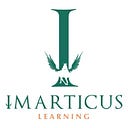The Importance of Training and Development in HR Strategies
In the dynamic and competitive business landscape of today, organizations recognize that their most valuable asset is their human capital. As a result, the role of Human Resources (HR) has evolved to encompass strategic initiatives that foster employee growth and development. Training and development have emerged as integral components of HR strategies, playing a pivotal role in enhancing employee skills, improving performance, and driving organizational success.
Empowering Employees Through Training and Development:
Skill Enhancement: Training and development programs equip employees with the skills and knowledge needed to excel in their roles. Continuous learning ensures that employees stay updated with industry trends and advancements.
Performance Improvement: Well-designed training can bridge skill gaps and improve employee performance. When employees are confident in their abilities, they are more likely to contribute meaningfully to the organization’s goals.
Employee Engagement: Organizations that invest in employee development demonstrate a commitment to their workforce’s growth. This boosts employee morale, engagement, and job satisfaction, leading to higher retention rates.
Talent Retention: Employees are more likely to stay with an organization that invests in their professional growth. This not only reduces turnover but also helps build a loyal and skilled workforce.
Adapting to Change: Training and development prepare employees for changing industry landscapes and technological advancements. This adaptability is crucial for maintaining competitiveness.
The Role of HR in Training and Development:
Identifying Training Needs: HR professionals assess skill gaps and training needs within the organization. This involves understanding the goals of the organization and aligning training initiatives accordingly.
Designing Effective Programs: HR experts collaborate with subject matter experts to design relevant and engaging training programs. These programs may include workshops, e-learning modules, on-the-job training, and more.
Delivery and Facilitation: HR professionals facilitate training sessions, ensuring that the content is delivered effectively and engages participants. They also create a supportive learning environment.
Measuring Effectiveness: HR evaluates the impact of training programs by collecting feedback, conducting assessments, and analyzing changes in performance metrics.
HR Management Course from Imarticus Learning:
Imarticus Learning’s HR Management course recognizes the pivotal role of training and development in HR strategies. The course offers a comprehensive understanding of how to effectively incorporate training and development initiatives into HR practices. Here are some key aspects of the course:
Training Needs Analysis: Learn how to identify gaps in employee skills and design training programs that address these gaps, ensuring maximum impact.
Curriculum Design: Understand the principles of designing effective training programs that cater to various learning styles and organizational needs.
Training Delivery Techniques: Acquire facilitation skills and explore various delivery methods to ensure training sessions are engaging and informative.
Measuring Training Impact: Learn how to assess the effectiveness of training initiatives by measuring employee performance improvements and gathering feedback.
Continuous Learning Culture: Explore strategies for creating a culture of continuous learning within organizations, fostering employee growth and development.
Imarticus Learning’s HR Management course equips students with the knowledge and skills needed to incorporate training and development as essential components of HR strategies. By understanding how to design, deliver, and evaluate training programs, students are prepared to become HR professionals who contribute significantly to their organization’s success.
In conclusion, training and development have evolved from being mere functional activities to becoming strategic imperatives within HR. Imarticus Learning’s HR Management course underscores the significance of training and development in modern HR strategies, empowering students to become skilled HR professionals who facilitate employee growth, improve performance, and drive organizational excellence.
